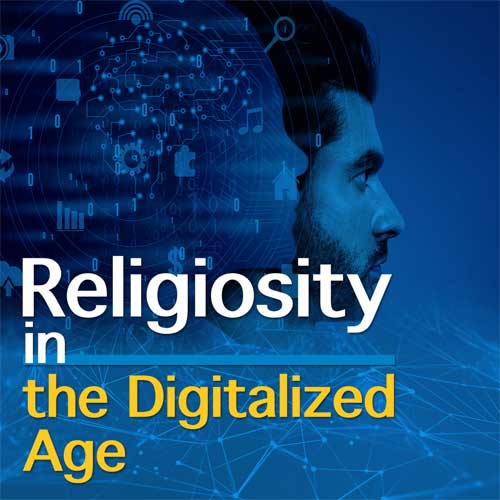Religiosity in the Digitalized Age

Dr. Ibrahim Negm
Senior Advisor to Egypt's Mufti
We are living in a constantly changing era that is mainly controlled by digital technologies and Artificial Intelligence (AI). This contributed to changing what it means to be human and religious. Given our increasing engagement with machines, we have entered an era of volatile spirituality. Religious reflection is badly needed with a view to preserve human spirituality, as we have known it to be the moving force that keeps a believer's heart in connection with their Lord, the Creator.
Maintaining a balanced view on this age of Artificial Intelligence (AI), it is unquestionably that humanity has reaped significant gains of this tremendous technological and digital revolution of communications, leaving a positive impact on various sectors covering education, healthcare, economy and other fields of human life.
Islam and AI: Are They at Odds?
In fact, no inherent conflict between Islam and Artificial Intelligence (AI). Islam as a religion recognizes the importance of knowledge, science, and technological advancements as long as they are utilized within the boundaries set by Islamic principles and ethics. Islam encourages the pursuit of knowledge and the use of intellect to improve human life and society. Therefore, the development and implementation of AI technologies can be seen as a means to achieve progress and benefit humanity, provided they align with Islamic values and do not contradict religious teachings. However, ethical considerations are crucial when it comes to the application of AI. Islamic principles emphasize justice, compassion, and the preservation of human dignity. Any use of AI that violates these principles, such as unethical surveillance, infringement on privacy, or the development of autonomous weapons, would be inconsistent with Islamic value.
On the other side, the realm of technology in general and AI in specific contributed to some extent to promoting extremist and destructive ideas relating to spreading suspicions of religions and advocating atheism. This includes promoting pornography by creating websites for that purpose, and often advertisements for pornographic materials appear through search engines in attempts to attract internet users, targeting children and youth. In addition, the electronic space is linked to an identity crisis and has a negative impact on the concepts of citizenship and belonging brought about by the process of open communication. Millions of individuals fall into the problem of adopting other identities and cultures and disowning their own identities. And here lie the identity crises that many Muslim youth worldwide are suffering to indicate in our time.
?Religiosity and AI: How to Reconcile
AI and religiosity present an intriguing intersection where technology and spirituality converge. This can be summed up in the following:
Ethical Considerations: Ethical discussions revolve around how AI should respect and accommodate religious sensitivities, ensuring that it does not undermine or violate core religious principles.
Interpretation and Guidance: Religion often involves interpretation of sacred texts and guidance from spiritual leaders. With the ability og AI to process vast amounts of information and offer insights, there may be a potential role for it in aiding religious interpretation or providing personalized spiritual guidance. However, the question of whether AI can truly capture the depth and nuances of religious experiences remains open.
Rituals and Practices: It raises questions about the authenticity and spiritual significance of physical presence in religious practices.
Theological Reflection: The rise of AI prompts theological reflections on human uniqueness, consciousness, and the nature of the divine. Exploring the compatibility of AI with religious doctrines can lead to deep philosophical debates and inquiries about the relationship between the divine and human creations. And with this case of information fluidity, people might get lost in the trap of atheism and faith crises.
Trust and Faith: Religion often encompasses trust and faith in the divine. When integrating AI into religious contexts, trust becomes a significant factor. How individuals perceive and trust AI systems to address their spiritual needs is an evolving area that warrants exploration.
Overall, the interaction between religiosity and AI raises complex and multifaceted questions that require careful consideration. It invites us to reflect on the impact of technology on our spiritual lives, the role of AI in religious practices, and the ethical implications involved in merging faith and artificial intelligence.
In conclusion, it is important for Muslims involved in the field of AI to approach its development and application with a strong ethical framework rooted in Islamic principles, ensuring that it serves the greater good and respects human values and rights. By doing so, Islam and AI can work harmoniously towards advancements that benefit individuals and society as a whole
 Arabic
Arabic French
French Deutsch
Deutsch Urdu
Urdu Pashto
Pashto Swahili
Swahili Hausa
Hausa
